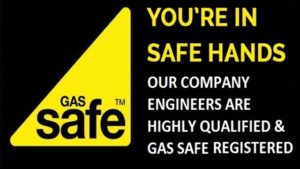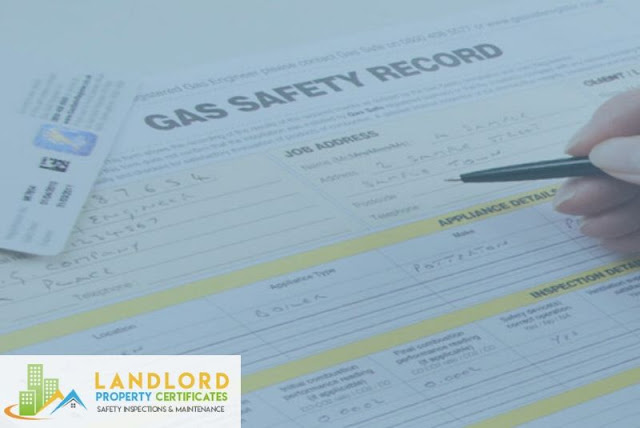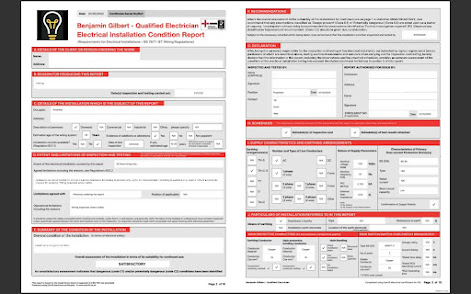The Most Important Duty Regarding Landlord Gas Safety Certificate
The law in the United Kingdom is very strict with regard to
gas safety in rental properties. The law of the landlord and tenants of 1985
states that a landlord is obliged to:
to keep the installations in the home in good condition for
the supply of water, gas, electricity and for sanitary facilities (including
sinks, sinks, baths, and sanitary facilities), but no other fixtures, fittings
and devices to make use of the supply of water, gas or electricity, and
to keep the installation in the home for space heating and
heating water in good condition and to make it work
Note: The excerpt above contains only the pieces of section
11 of the Act that relates to the Landlord Gas Safety Certificate.
The rule applies regardless of the lease. Landlords can
under no circumstances reject this responsibility.
The official legislation governing the use of gas in rental
properties is the Gas Safety Act of 1998. The law assigns responsibilities to
both landlords and tenants with regard to the use, monitoring, and maintenance
of the gas supply and equipment of the property. One of the most important
regulations is that concerning the gas safety certificate.
Gas safety certificate
To legally rent out their property, landlords must obtain a
gas safety certificate. The Deregulation Act requires landlords to provide
tenants with a valid certificate before they move.
The gas safety certificate is an official document that
records the state of all gas functions, devices and gas infrastructure at the
accommodation. In short, it indicates whether the property meets the
requirements of the government.
The Landlord Gas Safety Certificate is a standardized document. The vote
of the tenants suggests that you want to view this example of the Gas Safe
Register. The record that you receive must be very similar in content.
What information does a gas safety record contain?
The full name, signature and registration number of the gas the engineer who carried out the gas safety check
The address of the property being checked
The contact details of the lessor of the property or, if
applicable, a broker
The date of the inspection
The location and description of all gas appliances and flue
channels
Any defects or irregularities in the gas appliances
Any repairs that have been carried out on site
Which repairs are still needed to get the devices working
When the device needs to be serviced again
The landlord should confirm that all relevant gas safety checks
have been carried out
Do not forget to ask for the gas safety certificate when you
view a home. If the landlord or rental agent can show a valid certificate, they
probably follow the required safety standards in your home.
You must ask for the gas safety certificate before signing
and revoking the lease. The landlord or rental agent is obliged to deliver this
to you.
For tenants on a very short-term (less than 28 days) rent, a
copy of the gas safety report must be displayed in a prominent position within
the property. If this is not the case, check where it is, ask to see it and ask
if the gas appliances have indeed been checked.
The gas safety report can only be valid if it has been
issued by a gas safe registered engineer. The law requires that all working gas
engineers are registered in the Gas Safe Register. Otherwise, they work
illegally. All work performed by an engineer who is not part of the Gas Safe The register is also illegal.
Note: always requires your installer's Gas Safe Register ID
card.
What does the engineer do to gas safety check?
The gas-safe technician tests all devices and gas hoses, but
also:
Check the chimneys and flue pipes for blockage. The engineer
is likely to use smoke pellets and determine how much of the smoke reaches the
way out. If something returns to the origin, the flue is probably blocked and
must be removed.
Check the gas connections and infrastructure. It is
important that the gas supply safely and directly supplies gas to your gas
appliances. The installer will check whether all connections meet the safety
requirements.
Check the ventilation and oxygen supply. The gas-safe the engineer will check whether sufficient oxygen is supplied to burn gas
correctly.
Check every gas appliance. The engineer provides a basic
model and manufacturer information about each gas appliance. They will test how
they work and whether they are burning gas correctly, without errors. If
something is wrong, they will turn off and disconnect the device. If there is a
simple solution to the problem, they can try to repair the device on-site.
However, if serious repairs are needed, these recommendations will include
repairs and maintenance in the report.
At the end of the inspection, your landlord will receive a Landlord Gas Safety Certificate. If you are already a resident and the check is the annual
compulsory check, you will also receive the record. In most cases, tenants must
receive a copy of the original. All original gas inspection reports must be
kept by the tenant and/or lessor for at least two years.
Landlords must perform the gas safety check annually
Landlords must repeat this gas inspection every year. It is
the only way to legally obtain a gas safety certificate that is only valid for
12 months. The property cannot be rented without it.
Failure to comply with gas use standards, as required by
law is a serious crime. Renting out a home that does not use gas safely is
absolutely illegal and can be considered a criminal offense. The fine for
renting a home without checking gas safety includes a substantial fine and/or
imprisonment:
Invalid insurance
Up to £ 6,000 in fines
Six months in prison
Legal proceedings of a tenant who is claiming civil
compensation
Homicide is calculated if a tenant dies as a result of
poorly maintained / unsafe gas appliances or systems
Click the link Landlord Gas Safety Certificate.







Comments
Post a Comment